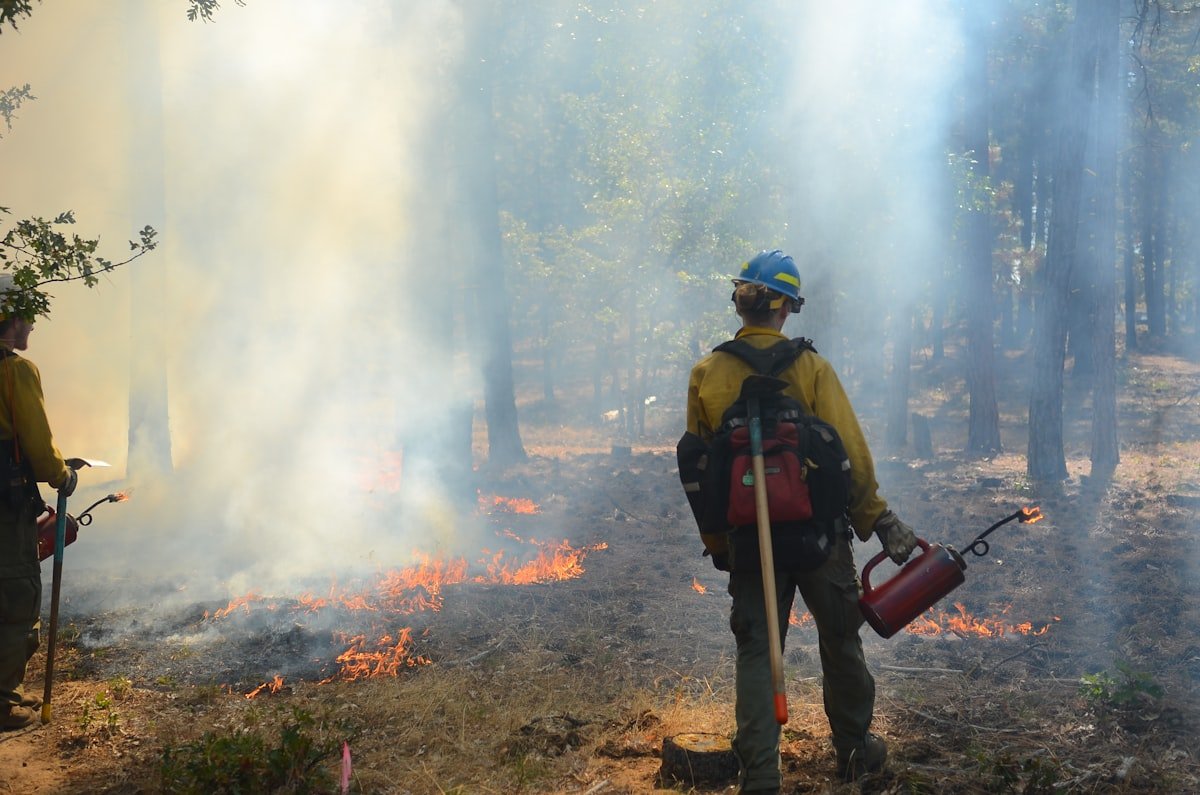2025 on Track to Break the UK Wildfire Record, Firefighters Warn
Experts are warning that 2025 could surpass the UK wildfire record, with firefighters bracing for one of the most severe wildfire seasons in history. Rising temperatures, prolonged droughts, and changing weather patterns are creating ideal conditions for uncontrolled blazes, putting communities and ecosystems at risk. If current trends continue, the UK wildfire record may be shattered, marking a concerning milestone in the nation’s battle against climate-driven disasters.
Why 2025 Could Break the UK Wildfire Record
The UK has experienced a steady increase in wildfires over the past decade, but 2025 is shaping up to be unprecedented. Climate scientists point to hotter, drier summers as a major factor, with heatwaves becoming more frequent and intense. These conditions dry out vegetation, turning grasslands, forests, and peatlands into tinderboxes. Firefighters report that even small sparks—whether from discarded cigarettes, barbecues, or machinery—can quickly escalate into large-scale infernos.
Another concern is the growing unpredictability of wildfires. Traditional wildfire hotspots, such as moorlands in northern England and Scotland, are now being joined by new vulnerable areas, including parts of southern England that were once considered low-risk. This expansion means fire services must prepare for outbreaks in regions with less experience managing large-scale blazes, increasing the likelihood of record-breaking fire incidents.
The Role of Climate Change in Fueling Wildfires
Climate change is undeniably accelerating wildfire risks across the UK. Met Office data shows that average summer temperatures have risen significantly over the past 50 years, with 2022 and 2023 both ranking among the hottest on record. If this trend persists, 2025 could see even more extreme conditions, further drying out landscapes and making them more susceptible to ignition.
Peat fires, in particular, pose a severe threat. Unlike surface fires, peat wildfires burn underground, making them harder to extinguish and releasing massive amounts of stored carbon into the atmosphere. These fires can smolder for weeks or even months, reigniting surface flames and complicating firefighting efforts. If peatlands catch fire in 2025, the environmental and climatic consequences could be devastating, contributing to a new UK wildfire record.
Firefighters’ Warnings and Preparedness Efforts
Fire services across the UK are sounding the alarm, urging the public and policymakers to take wildfire threats seriously. Many brigades are investing in specialized equipment, such as wildfire-resistant vehicles and aerial firefighting support, but resources remain stretched. With budgets under pressure, firefighters worry they may not have the capacity to handle multiple large-scale fires simultaneously.
Community awareness is also critical. Firefighters emphasize the importance of responsible behavior, particularly during high-risk periods. Simple actions, such as avoiding disposable barbecues in dry areas and properly extinguishing cigarettes, can prevent accidental ignitions. Public education campaigns are being ramped up ahead of 2025 to reduce human-caused fires, which account for a significant portion of wildfire incidents.
The Economic and Environmental Impact of Record Wildfires
If 2025 does break the UK wildfire record, the repercussions will extend far beyond immediate fire damage. Wildfires destroy habitats, threaten wildlife, and degrade air quality, with smoke posing serious health risks, especially for vulnerable populations. The economic toll is also substantial, including firefighting costs, property damage, and lost revenue for agriculture and tourism.
Long-term environmental damage is another major concern. Wildfires accelerate soil erosion, reduce biodiversity, and release vast amounts of CO₂, exacerbating climate change. Restoring burned landscapes can take decades, and some ecosystems may never fully recover. Preventing record-breaking wildfire seasons must be a priority to safeguard both the environment and public health.
How the UK Can Mitigate Wildfire Risks in 2025 and Beyond
To avoid surpassing the UK wildfire record, a multi-faceted approach is needed. Improved land management, including controlled burns and vegetation clearing, can reduce fuel loads in high-risk areas. Policymakers must also prioritize climate adaptation strategies, such as water conservation measures and urban planning that minimizes fire risks.
International collaboration will be key, as wildfires are a global challenge. The UK can learn from countries with extensive wildfire experience, such as Australia and the US, adopting best practices in prevention, detection, and suppression. Investing in early warning systems and satellite monitoring could help detect fires before they spiral out of control.
Conclusion: A Critical Year for Wildfire Prevention
2025 could be a defining year in the UK’s fight against wildfires. With experts warning of potential record-breaking fire activity, proactive measures are essential to protect lives, property, and natural landscapes. By addressing the root causes—climate change, human behavior, and insufficient preparedness—the UK can reduce the risk of catastrophic wildfires and avoid setting a grim new UK wildfire record.





 Bank of England Rate Cut Amid Rising Food Costs
Bank of England Rate Cut Amid Rising Food Costs